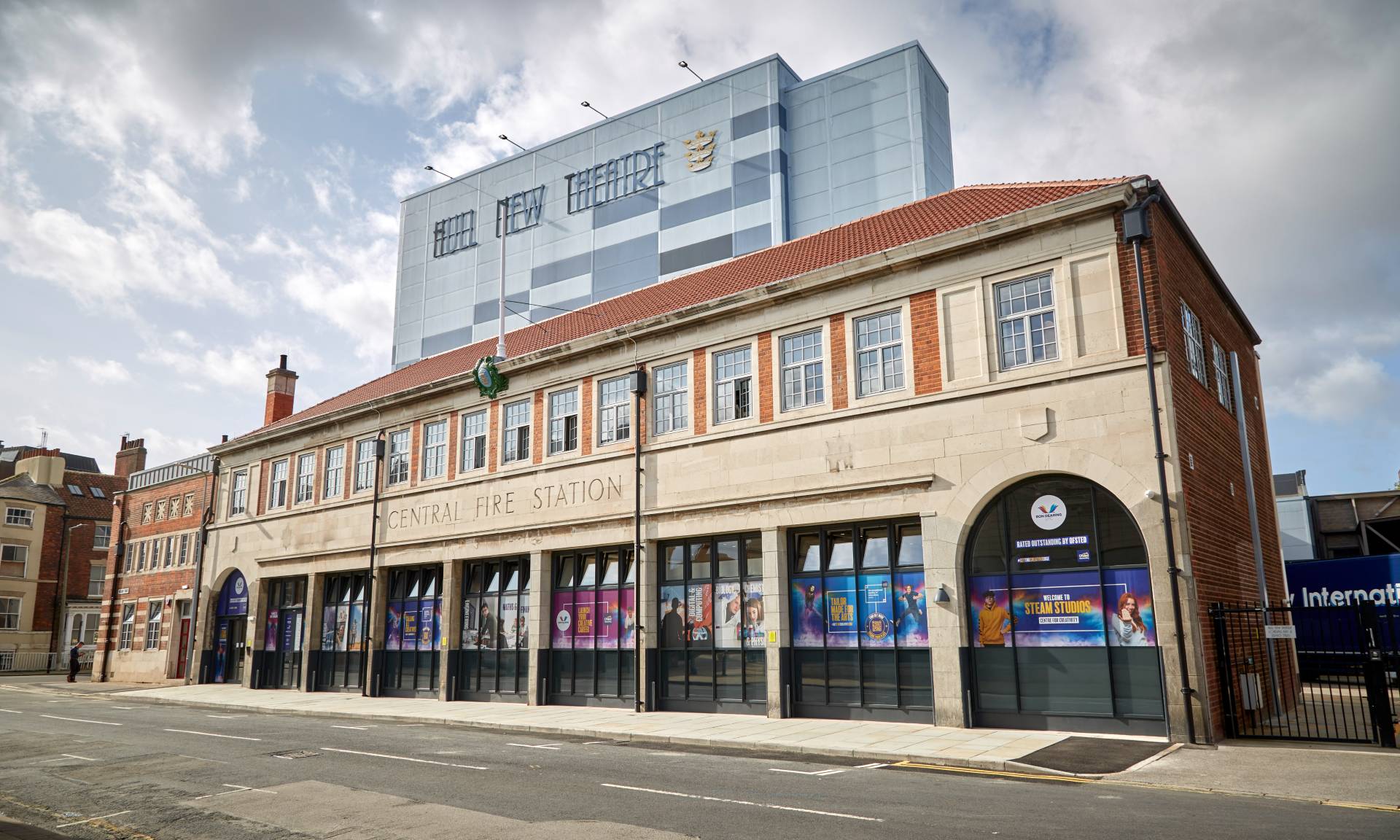The transformation of Hull’s former central fire station into a new creative studio for Ron Dearing University Technical College (UTC) has been recognised at a prestigious awards ceremony.
The project by Sewell Construction to refurbish the disused fire station into a state-of-the-art sustainable learning space was the winner of the Regeneration and Retrofit category at the Constructing Excellence Yorkshire and Humber Awards.
The project then went on to take home the overall ‘Best of the Best’ prize as the top winner out of all projects showcased on the night, being commended for its sympathetic yet sustainable conversion of the building into a modern education facility.
The STEAM Studios are a dedicated centre for creativity, opened by Ron Dearing UTC in September 2023. The facility contains a gallery and exhibition space, 2D and 3D art studios, a photography studio and a sixth form independent study centre, as well as being used to educate engineering students about opportunities in green skills.
The judges were impressed by the long-term view the refurbishment took towards the carbon footprint of the studio, ensuring the fabric of the building was upgraded so the site will use less energy to heat in future, helping the UTC on its journey to net zero.
The STEAM Studios are also futureproofed for new innovations in green technology, with the building made connection-ready for the new Hull District Heating Network.
The project is also being used to help the UTC’s students learn new skills, with Sewell Construction and Ron Dearing UTC now working in partnership to embed the STEAM Studios refurbishment into the curriculum so students can learn about how decarbonisation and the environment are integral to good construction practices.
Chris Soper, Managing Director of Sewell Construction said:
“The STEAM Studios project was fantastic to work on, as the team at the UTC were really receptive to our ideas about how to make the building as sustainable as possible. Instead of trying to chase quick wins, they were happy to work with us to look a bit differently at the refurbishment, enabling us to support their long term journey to net zero. It’s vital for the sustainability of our cities that we learn to work with existing buildings to breathe new life into them and make them more efficient, instead of simply knocking them down and building anew.
“The STEAM Studios are now a fantastic new facility for the UTC, not only giving students a space to express their creativity, but also enabling students to learn from a real life case study about how careers in green skills can combine design, creativity and technical knowledge.”
Sarah Pashley, Principal at Ron Dearing UTC said:
“The STEAM Studios project has enabled Ron Dearing UTC to offer an additional 200 student places, which is fantastic. STEAM Studios provides a beautiful, purpose-designed facility for students studying our creative subjects and those studying Renewables modules on our Engineering qualifications. The design and build process was a wonderful opportunity for our students to learn about sustainable construction practices and we are very grateful to Sewell Construction for involving them in this process. We are also extremely grateful to Orsted for their sponsorship which provided the additional funding we needed to upgrade the fabric of the building to ensure its energy efficiency.“
The Sewell Construction team will now go on to the UK finals of the awards in November, where they’ll be hoping to repeat their success at a national level.
Sewell Construction, who have their headquarters in Hull, deliver a range of construction projects across the Yorkshire and Humber region. Part of the larger Sewell Group, the company works on design, build, refurbishment and retrofit schemes, and recent projects have included the refurbishment of the Endeavour building for Hull Trinity House Academy, the creation of new T-Level facilities at Bradford College, the construction of West Hull health Hub and the refurbishment of The Edge fitness centre at the University of Leeds.
Last year, the company became part employee-owned, with all staff becoming co-owners in the business, which gives them a greater say in how the business is run.


